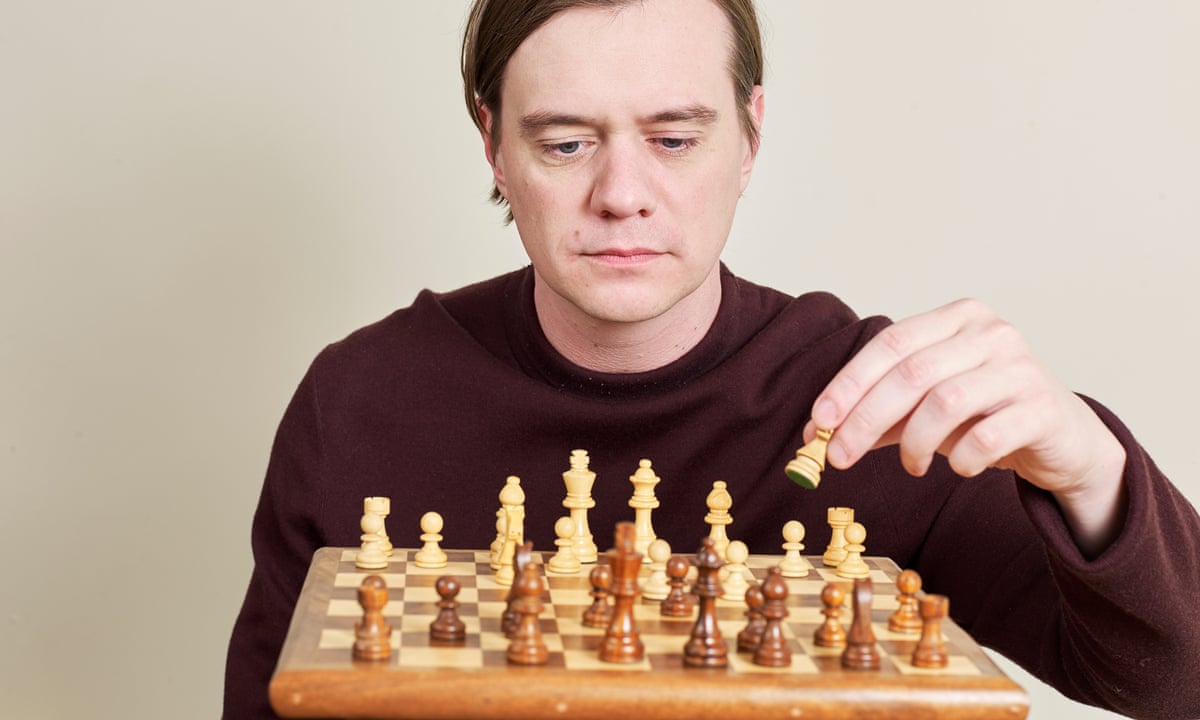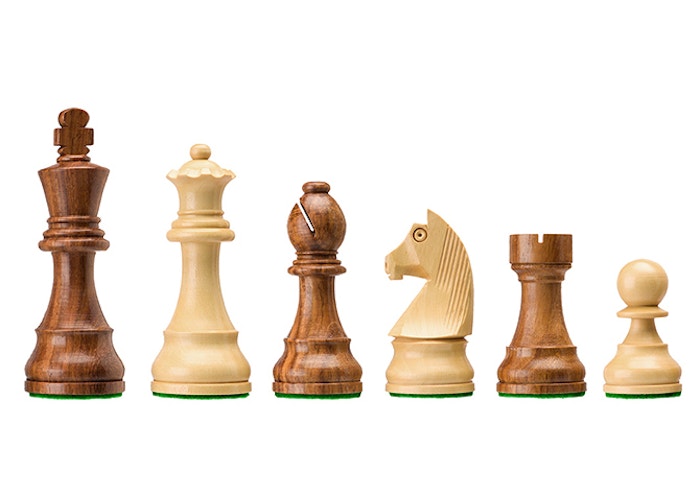Fundamental Chess Strategies for New Players
Wiki Article
Why You Need To Play Chess: The Advantages of Taking Part In This Timeless Intellectual Difficulty
Chess is even more than a basic game; it offers as a rigorous mental workout that develops various cognitive abilities. Players participate in tactical reasoning and establish analytical capabilities, which can have lasting advantages in everyday life. The self-control required for enhancement promotes perseverance and resilience. Yet, real essence of chess exists not simply in its intellectual demands but in the connections it cultivates within a community. Exploring these dimensions reveals much concerning why chess continues to be ageless.Enhancing Cognitive Abilities
Playing chess significantly enhances cognitive skills, making it a useful task for individuals of every ages. The video game demands strategic reasoning and insight, requiring gamers to anticipate their opponent's actions while formulating a winning approach. This mental exercise develops focus and concentration, vital parts of cognitive feature.
Chess motivates creative thinking, motivating players to discover innovative strategies and unusual strategies to the game. As they browse the chessboard, people create patience and strength, important qualities for cognitive growth. Overall, the diverse cognitive benefits of chess make it an improving pursuit, advertising lifelong psychological dexterity and intellectual involvement.
Boosting Problem-Solving Abilities
Countless studies have revealed that involving in chess can considerably improve analytical abilities. The game needs players to assess complex positions and anticipate the challenger's actions, cultivating vital assuming skills. As they navigate numerous circumstances, chess players establish the ability to examine several end results and make strategic choices under stress. This process improves their capability to technique real-life problems with a structured attitude.Moreover, chess promotes the identification of patterns and the application of rational thinking, abilities that are essential in efficient analytic. Gamers learn to assess risks and benefits, refining their judgment in unclear situations. The repetitive nature of chess play reinforces these abilities, enabling people to transfer their boosted analytical capacities to scholastic and specialist contexts. Inevitably, chess acts as an important tool for any person seeking to hone their analytical skills and improve their overall cognitive performance in tough scenarios.
Cultivating Persistence and Discipline
While participating in chess can be an interesting experience, it additionally needs a considerable degree of patience and discipline. Gamers must learn to thoroughly think about each action, evaluating possible outcomes and approaches. This thoughtful method promotes a way of thinking that values long-term success over prompt satisfaction. In chess, rash choices frequently lead to negative consequences, enhancing the value of taking one's time to evaluate the board and anticipate an opponent's actions.
Technique is additional grown via constant technique and research. Players commonly commit hours to improving their skills, studying tactics, and examining past games. This dedication to understanding the game infuses a sense of duty and perseverance, crucial qualities that extend past the chessboard. Ultimately, the combination of persistence and self-control not just improves a player's chess capacities but likewise adds to individual development, equipping people with important devices for steering obstacles in various facets of life.
Fostering Creativity and Creative Imagination

Planning relocations involves not just reasoning but additionally the capability to anticipate a challenger's reactions, motivating gamers to imagine multiple paths and options. As gamers try out various methods, they discover to innovate and adjust, enhancing their innovative problem-solving skills.
Moreover, the video game's complexity invites players to check out non-traditional ideas and techniques, resulting in personal designs of play. This expedition nurtures a sense of imaginative expression, as each player crafts their own approach to obstacles on the board. Ultimately, chess becomes a canvas for imagination, allowing people to share their special viewpoints while establishing their creative capabilities
Building Social Connections and Community
Playing chess uses possibilities for individuals to network through events and regional chess clubs. These atmospheres cultivate links among players, creating a sense of area focused around a shared passion. Participating in these tasks not just improves abilities however likewise develops Read More Here long-term relationships.Networking Through Tournaments
When individuals participate in chess competitions, they frequently find themselves involved in a dynamic neighborhood of like-minded people. These events supply an outstanding platform for gamers to build connections, share strategies, and celebrate their enthusiasm for the game. Engaging in friendly competitors cultivates friendship, as players from varied histories collaborated to test each various other. Networking opportunities are plentiful, with many participants developing enduring relationships that extend beyond the chessboard. In addition, these tournaments frequently bring in sponsors and chess enthusiasts, additionally improving the possibility for specialist connections. As players take part in discussions about methods and experiences, they construct a network that can lead to future partnerships and opportunities within the chess world and past.Local Chess Clubs

Offering an Enjoyable and Engaging Challenge
Chess uses a distinctively boosting experience that mesmerizes players of all ages, as it incorporates critical thinking with the adventure of competitors. This timeless game presents a compelling difficulty, motivating individuals to think critically and artistically. Each match unravels as Find Out More a fight of wits, where players must anticipate their opponent's moves while creating their own techniques.The intellectual interaction chess gives is matched by its capability to captivate. Gamers typically locate themselves immersed in the game, misplacing time as they browse intricate placements and tactical issues (Chess). This increased focus promotes a feeling of accomplishment, particularly when a difficult move leads to success
Chess promotes social communication, enabling players to bond over shared experiences and challenges. The game's endless variants assure that no 2 sessions are alike, maintaining participants enthusiastic to fine-tune their skills and techniques. This vibrant mix of difficulty and satisfaction makes chess a tempting pursuit.
Frequently Asked Questions
Can Chess Be Played Online or Only in Person?
Chess can be played both online and in person. On-line platforms use players the comfort of contending against opponents worldwide, while in-person video games foster social communication and physical visibility, enriching the total experience.What Age Is Best to Begin Learning Chess?
Specialists suggest that children can begin learning chess as very early as age 5 or 6. At this age, they can grasp fundamental ideas, enhancing cognitive skills while cultivating a love for the video game that lasts a lifetime.Are There Chess Tournaments for Beginners?
Yes, there are chess competitions especially designed for beginners. These occasions give a supportive setting for newbie players to get experience, improve their skills, and take pleasure in the affordable spirit of chess without dealing with innovative opponents.How much time Does It Require To Become Competent at Chess?
Becoming competent at chess commonly needs regular method over a number of months to years. Aspects such as individual dedication, prior experience, and research of techniques significantly my response affect the moment needed to reach a proficient level.What Resources Are Offered for Knowing Chess Strategies?
Various sources exist for discovering chess methods, consisting of online tutorials, books by prominent authors, chess applications, and interactive sites. Numerous players also gain from signing up with regional clubs or joining on-line discussion forums for real-time understandings.Report this wiki page